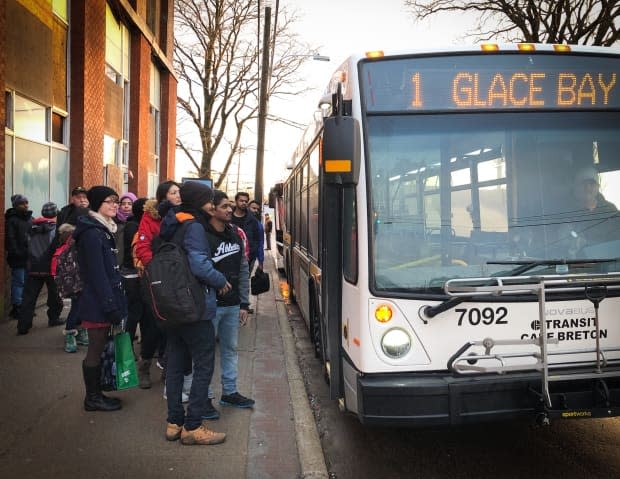CBRM studying cost of switching to electric transit buses

The Cape Breton Regional Municipality is looking at replacing some of its diesel transit fleet with electric buses, despite concerns about the long-term cost, charging stations and maintenance.
Mayor Amanda McDougall said the federal government will soon end subsidies for diesel transit vehicles and switching to electric buses will be mandatory, just like the adoption of new federal wastewater regulations a few years ago.
"Municipalities, they might not be able to meet those standards immediately, but you don't have a choice in the matter," McDougall said. "The changes must be made."
During budget talks last month, council was told CBRM is at the start of a two-year, $900,000 study on electrifying the transit system.
The municipality's share is $240,000, with the provincial and federal governments kicking in the rest.
'Very significant' costs
The study will look at the cost of building a new maintenance facility and transit hub. It will also consider which routes can easily be converted to electric buses.
There has been no indication from the municipality of how much the conversion might cost.
Public Works director Wayne MacDonald said the municipality is trying to position itself to ensure the changeover is feasible.
"The costs are very significant," he said. "The initial plan is that we will spend some time evaluating technologies, evaluating options for the move forward."
He said the provincial government is working with CBRM on a pilot project where the municipality would receive electric buses, but that won't happen until the study is complete. He also said there will likely be government subsidies for the buses.

McDougall said the municipality can approach other levels of government for financial assistance once the cost of introducing electric buses is known.
"If this is what the goal is and we know that after 2023 there will not be any more funding for diesel-fuelled buses, we just have to have all of our ducks in a row," she said.
Halifax Transit indicated earlier this year that it will move ahead with a conversion to electric buses.
Last spring, HRM council unanimously endorsed two rapid transit projects, which would include making half of the Halifax Transit fleet electric, among other initiatives. The eight-year plan was estimated to cost $786 million, with the municipality contributing $210 million.
MORE TOP STORIES

 Yahoo Movies
Yahoo Movies 